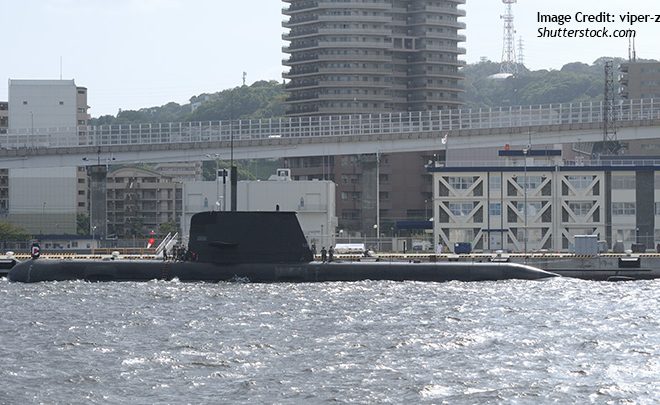Do not Jettison Traditional Data Sharing in Maritime Domain

The sea remains troubled by bad actors. Piracy, trafficking, and illegal fishing, among others, continue to threaten our seas. Some criminals have no affiliation with nation-states, while others operate with the permission of, if not outright affiliation with, various governments who find such criminality a means to further their political interests. The recent attacks by the Houthi on commercial shipping in the Red Sea are the most recent example of how criminality impacts us all. Information sharing remains an effective means to address maritime crime. The data that constitutes that information, though, must remain diverse, routinely and quickly shared, and not purely driven by technological trends.
Maritime Domain Awareness
Building awareness beyond the maritime community is essential. To do this, the community has invested substantially in what is called Maritime Domain Awareness (MDA), or the collective building of understanding in the ways contemporary governance, commerce, and societal health is tied to the safety, security, and free access to our seas. By and large, this process has proven successful globally and led to greater investment in tools and cooperative mechanisms meant to strengthen efforts to combat maritime aggression and illegality.
However, progress has had an unforeseen side-effect – the increasing reliance on technological platforms as the default means for progressing MDA. Instead of MDA efforts using varied forms of data to make policymakers pay attention, the pattern has become one where policymakers, especially in established naval powers, are investing in advanced technological tools to gain even greater pinpointed knowledge about what is occurring at sea. For less developed or less experienced nations, the entry level for cooperating in MDA can be too high and far too unforgiving.
As such, it is necessary to draw attention and to continue to support MDA methods that remain affordable, effective, and lead to real operational impact. These methods, which are often not tied to technological innovation, receive far less attention than they should.
Technology empowers MDA…
Contemporary discussions on MDA are often dominated by developed nations and highly technical private sector firms. The current rage in MDA is low-earth orbit satellite imagery, machine learning algorithmic tools, predictive digital modelling, and various formats of sensor networking. Such tools can facilitate amazing analysis and are certainly essential for aspects of the overall MDA puzzle, but the more such technologically driven tools steer the conversation about MDA the less other forms of maritime data are emphasized. These forms of maritime data are often experience-based, locally collected, and qualitative in nature.
…at the Cost of Traditional Data
At its heart, MDA is about data, and the accumulation, sharing, analysis, and operations that follow. Unfortunately, too many interpret data as digital and technological in nature, when it is data points across a spectrum that informs what is happening at sea. As an example of the data problem in question, imagine a nation-state afflicted by rampant exploitation of their territorial seas by traffickers. A comprehensive package of technological tools that are impressive in scale and cost can be directed towards these waters to find indicators of how these traffickers operate and exploit gaps in the state’s security. This is one answer, but a better answer could be to liaise with the coastal community near the waters in question. It is very likely that this community could not only have knowledge of the problem set but give precise responses regarding what odd things they have directly witnessed. This is an example of MDA, one that is within reach of all actors and one that should be routinely highlighted as a means for information sharing.
Technological platforms like SeaVision, created by the United States government, can help fill in gaps in information for foreign partners and assist in helping nations direct their existing assets in more effective ways. There are real benefits to the technologically driven side of MDA. Yet, such platforms or tools are not the comprehensive answer. MDA can be assisted by forms of traditional data that can also provide key information to security forces. Better liaising within a nation state or among maritime industries can provide exemplary data to better state responses to crime. Support for such efforts is not routinely part of regional or international maritime security forums. Conversations on maritime security need to include community outreach as a source of data. Doing so would require reforms in how maritime security cooperation amongst states occurs and recalibration on how states share information both internally and externally.
Traditional data remains important for all state maritime security efforts, but usually remains unshared beyond borders due to determinations of risk or irrelevance. Such data is relevant and should be shared, even if doing so includes risk. Developing states in particular know that maritime crime is transnational in nature and local knowledge would only amplify the effectiveness of cooperative efforts while also recalibrating the models that inform MDA. Developed powers must listen to their partners and recognize that technology does not create total awareness.
Data and Trust
Those who seek to protect our seas need as much data as possible to devise ways to increase the costs upon bad actors at sea. Options exist and they are within reach for all actors seeking to make progress. It is necessary for developed naval powers to recognize that not all solutions to maritime crime can be observed on a screen. It is also necessary for developing powers to share the data they acquire from their own engagement and experience, even if doing so comes with a cost. MDA has evolved through recognition of the importance of data. The challenge now is to not jettison data that remains important and to build cooperative efforts with tradition and innovation bound together.